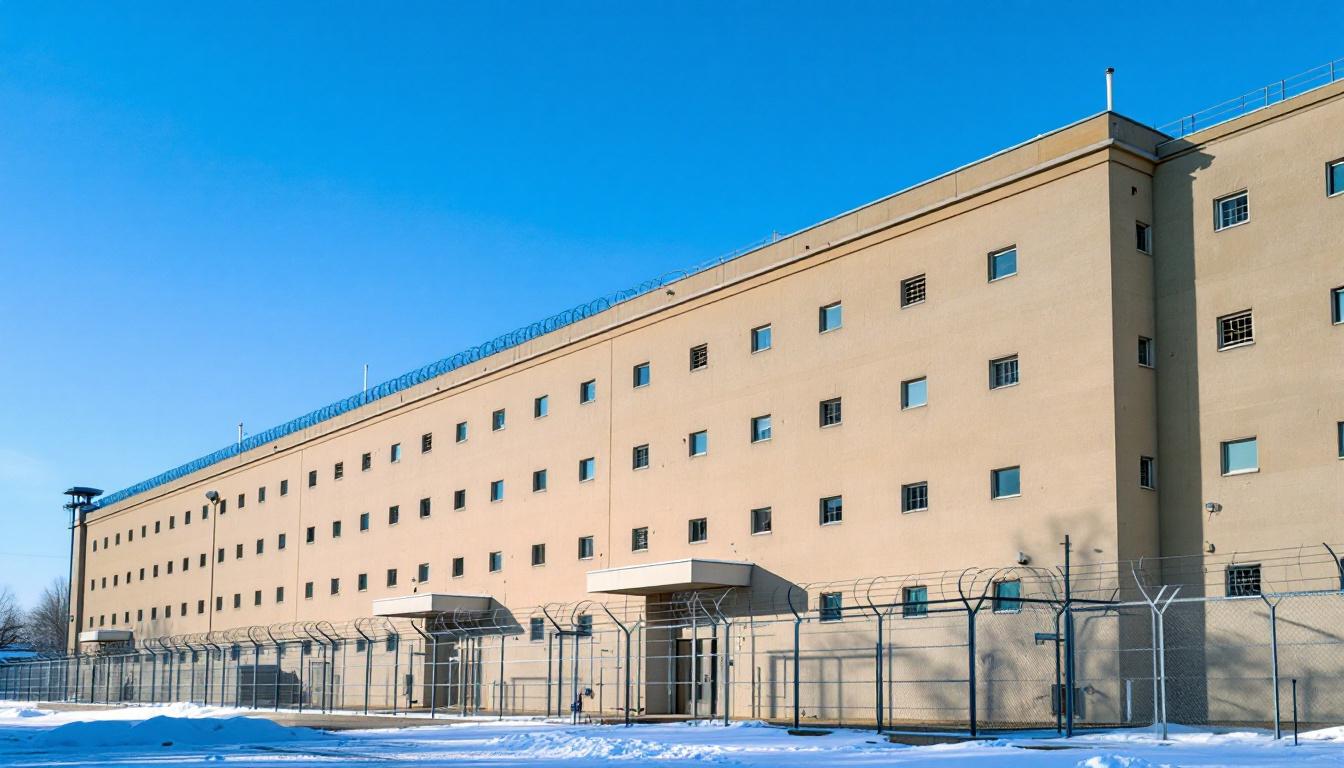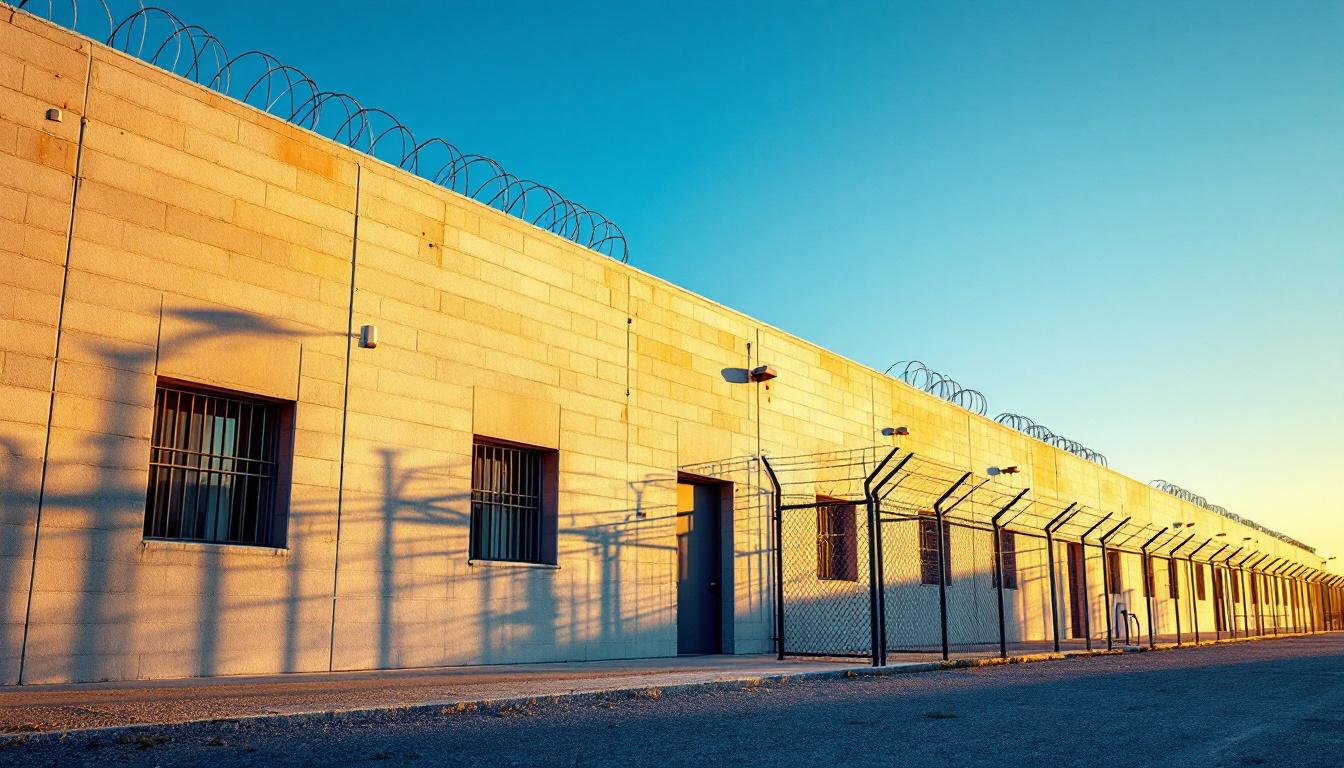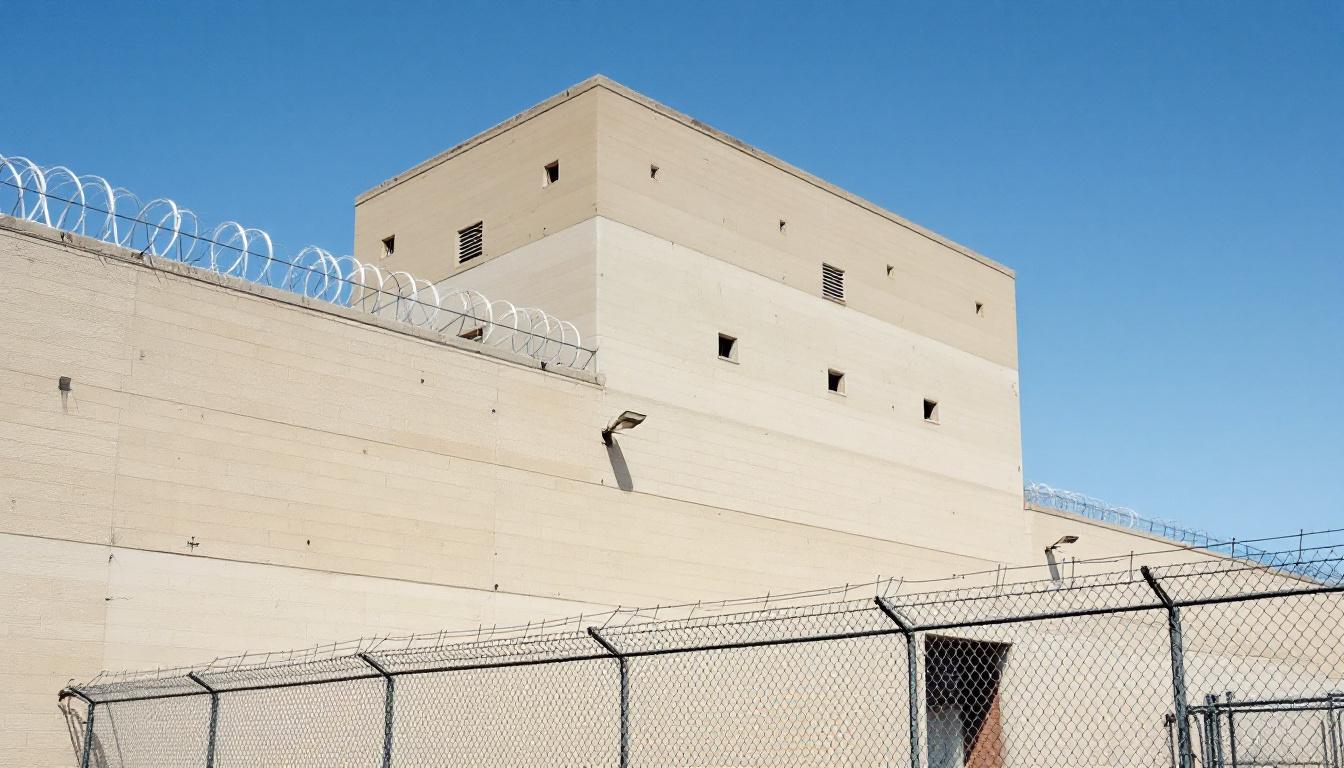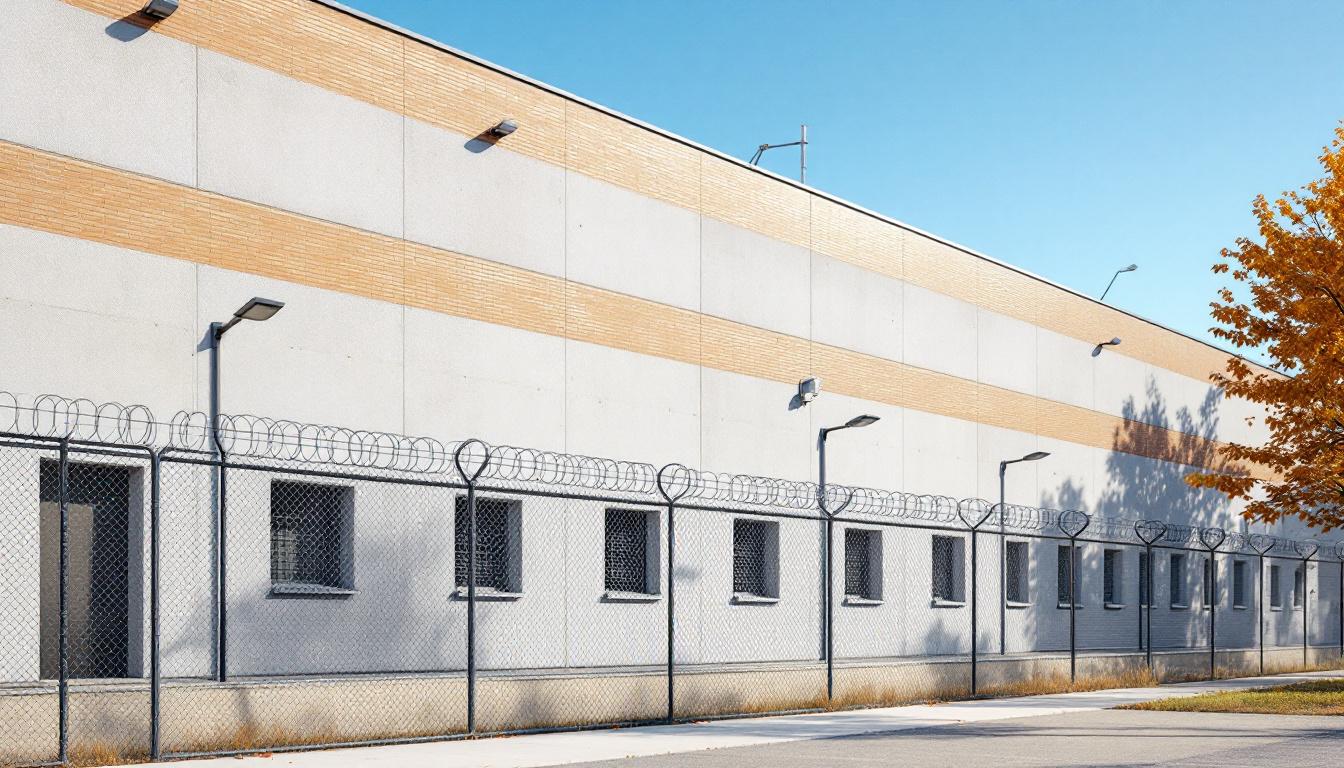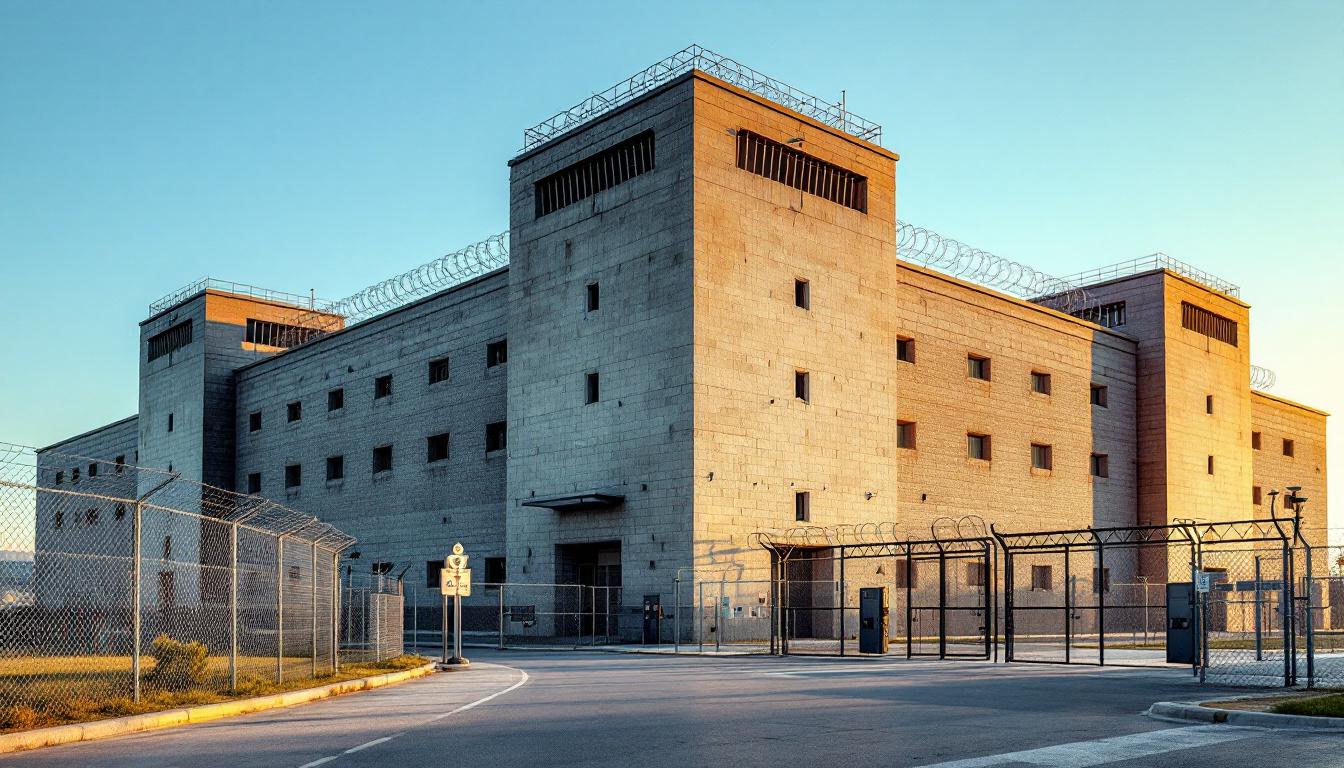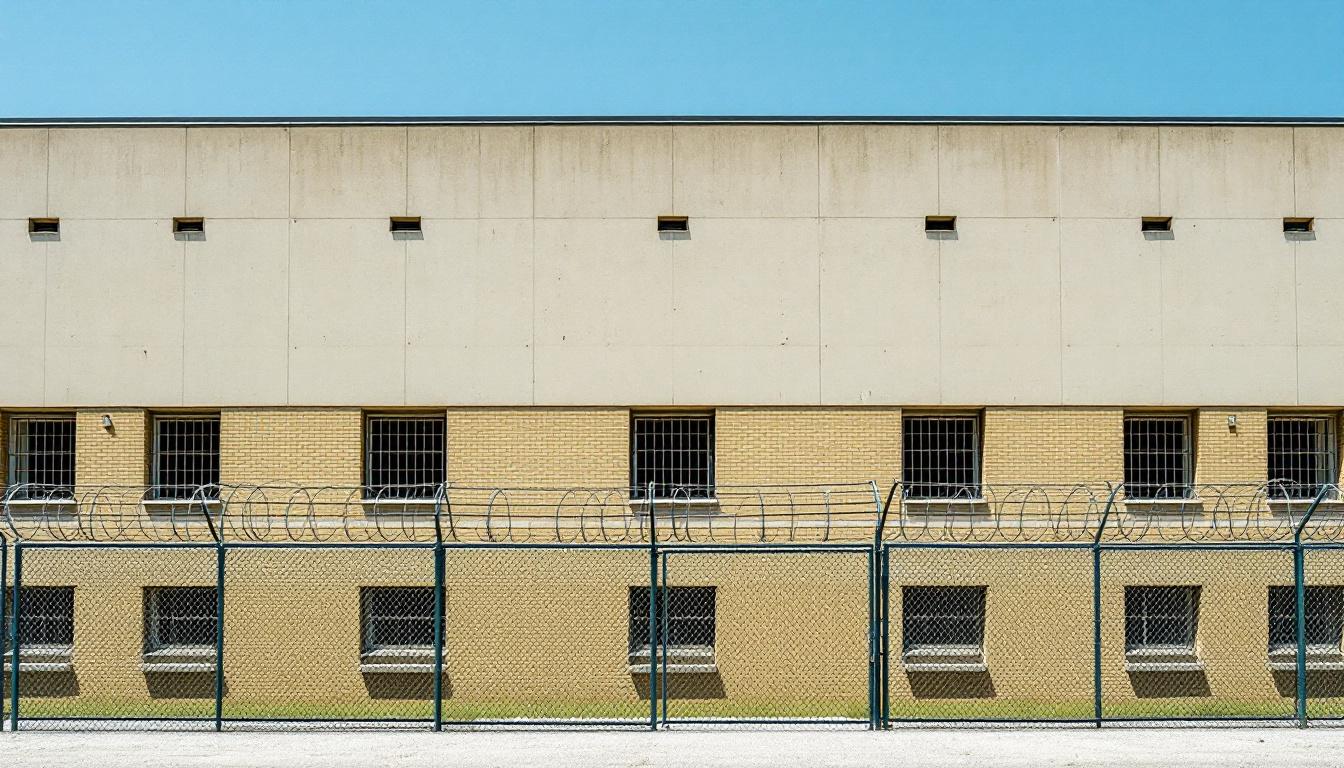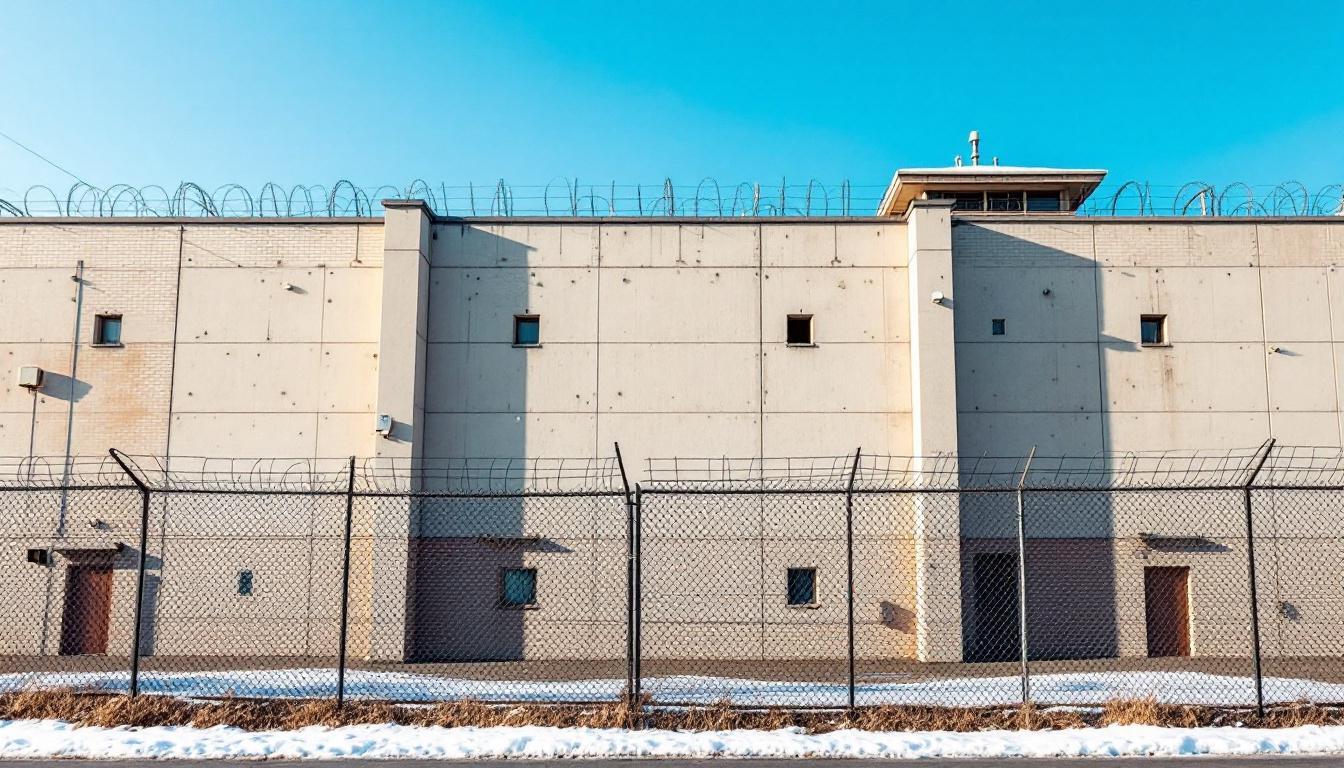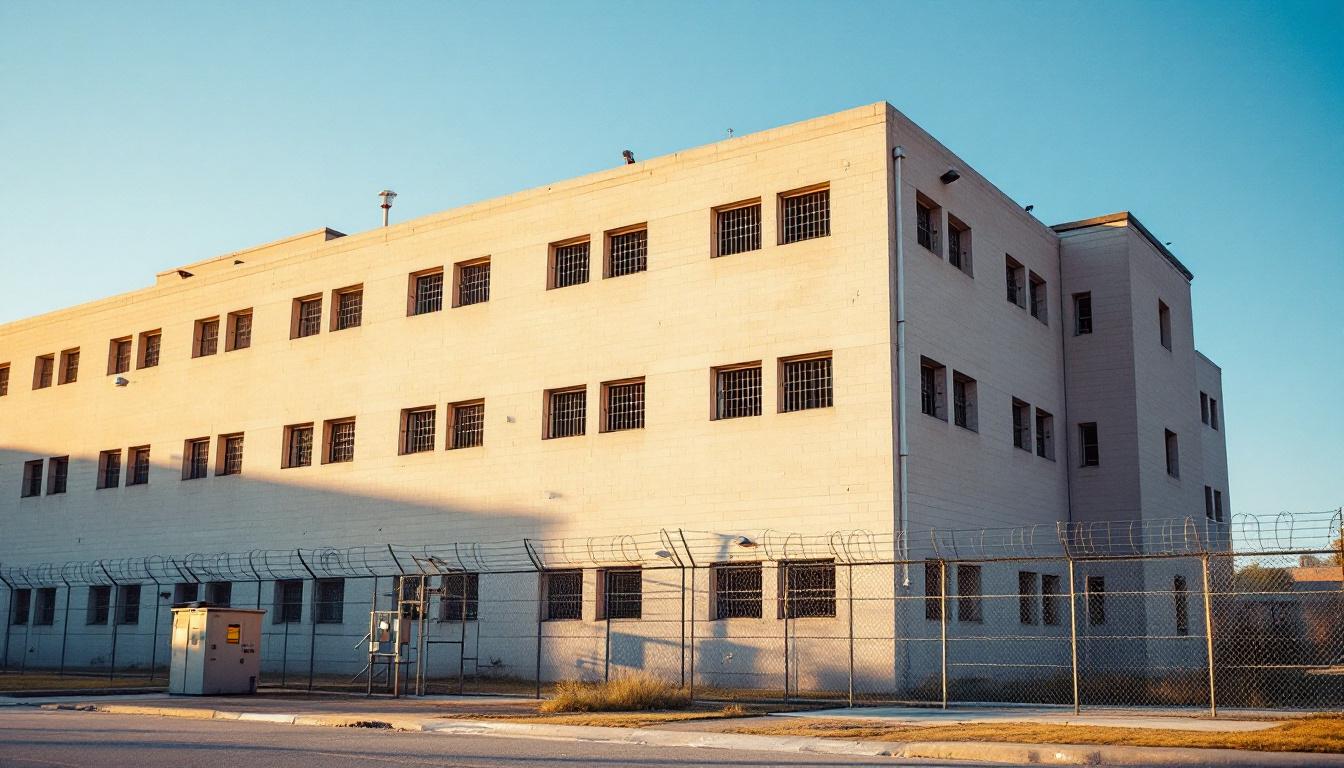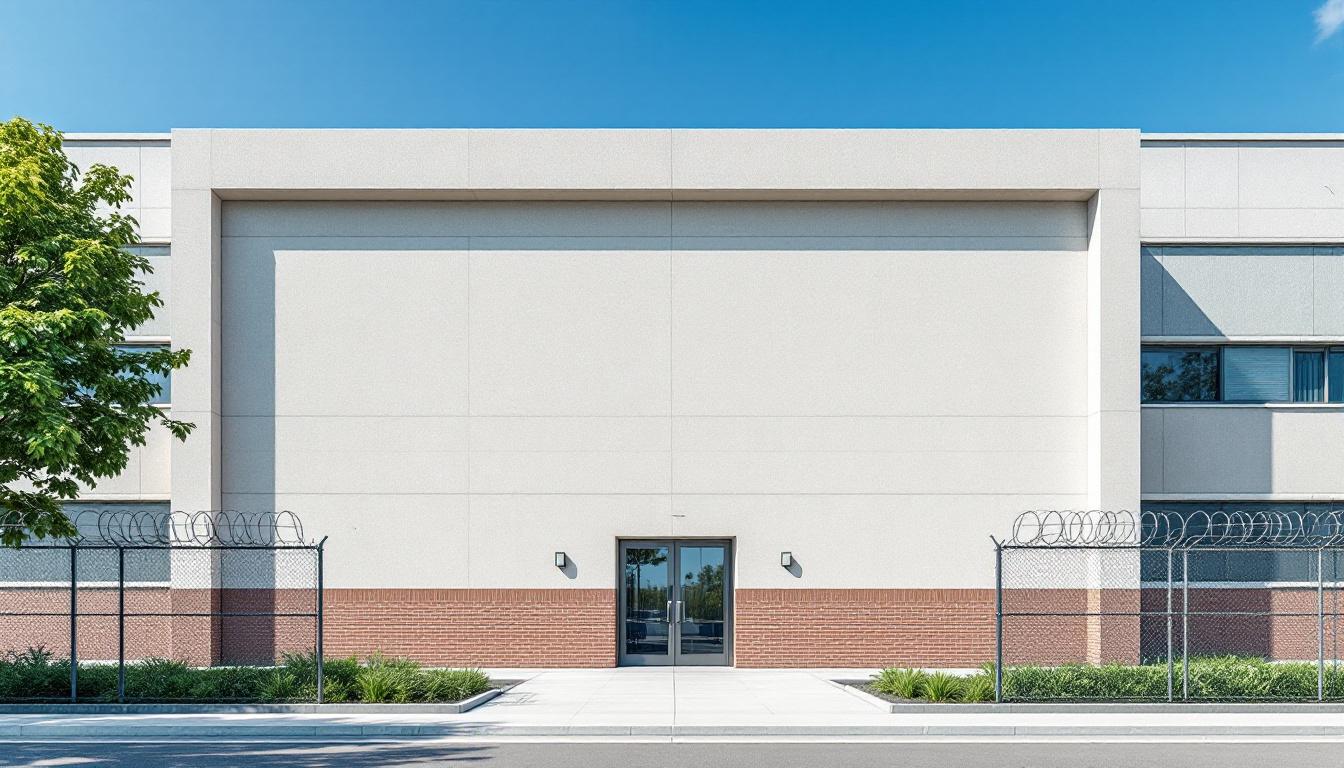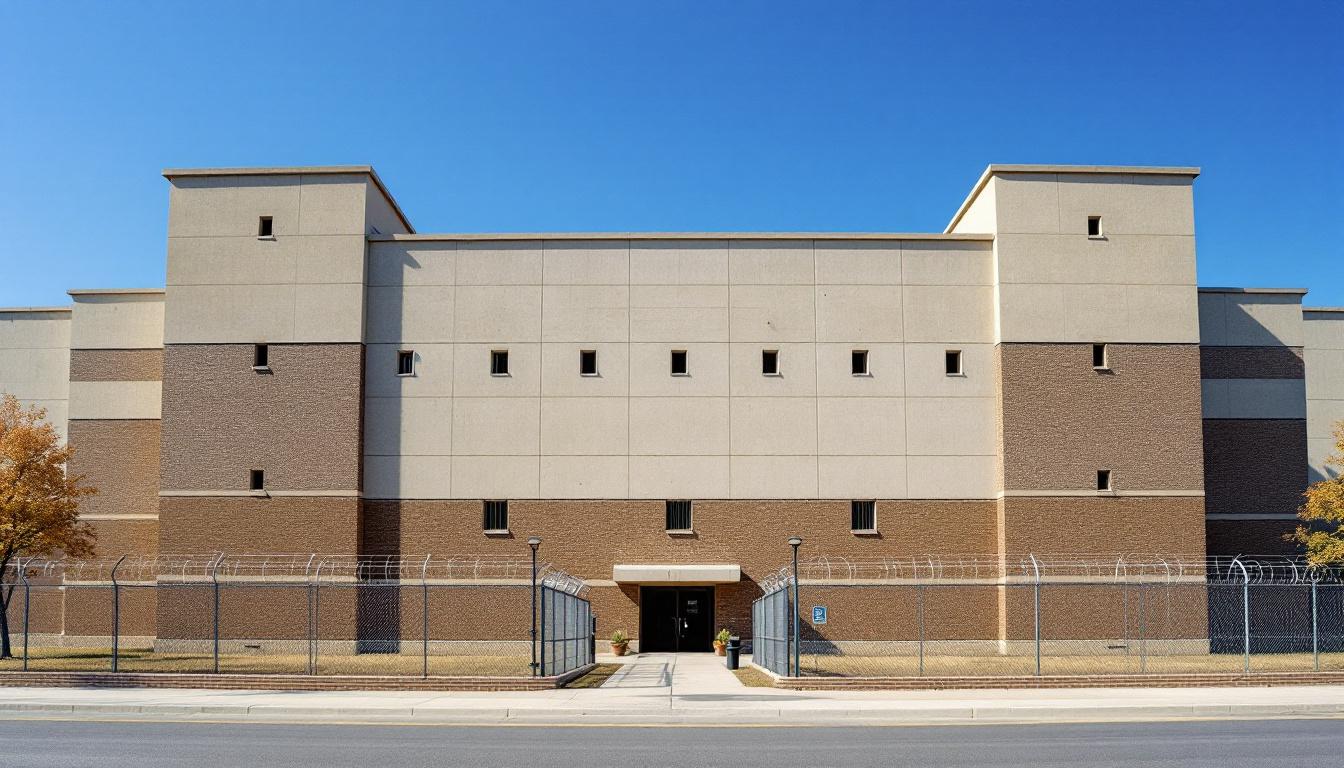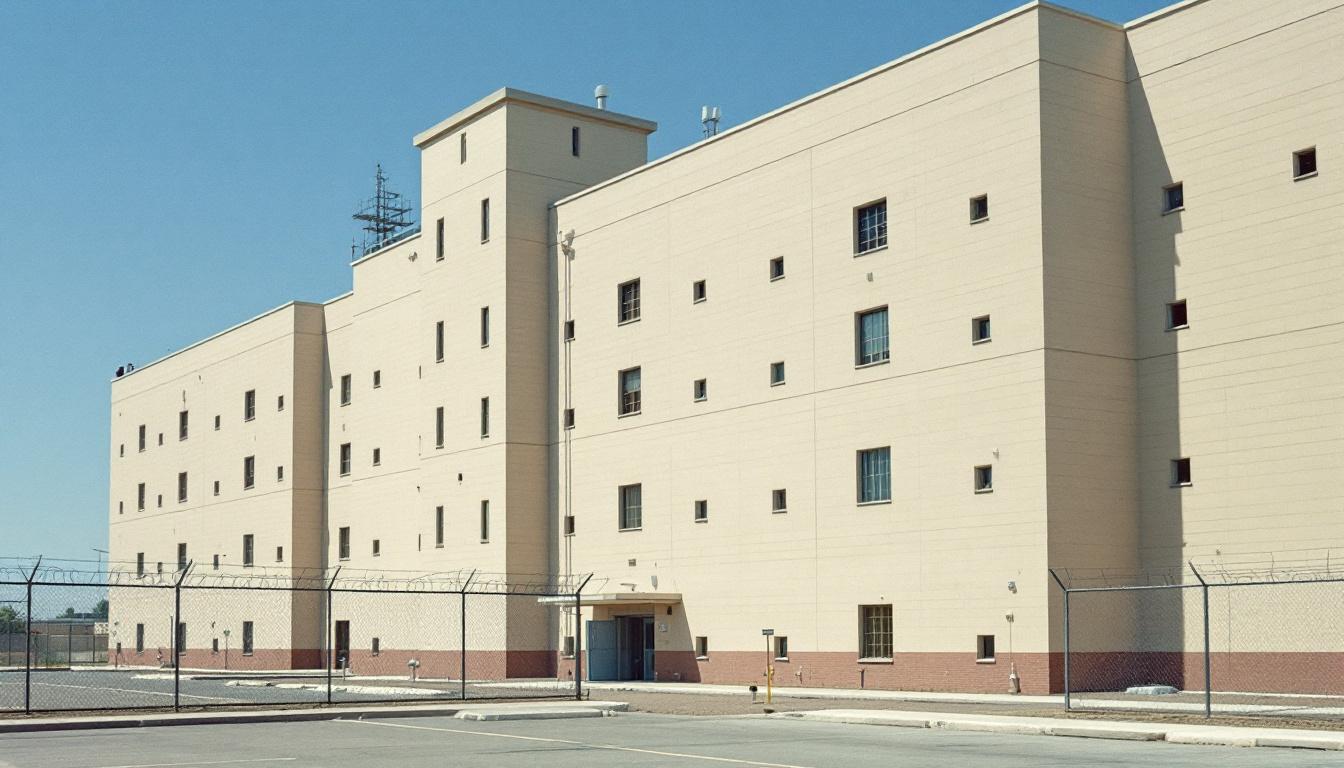
Quick Navigation
How to contact an inmate at Forsyth County Jail
This comprehensive guide will walk you through how to connect with an inmate at Forsyth County Jail. Follow the steps below to find an inmate and send letters and photos:
- Search for the inmate using our search tool below
- Create your account or log in to Penmate
- Write your message (up to 6,000 characters)
- Send instantly - inmates receive printed copies daily
Find an Inmate
Search for an inmate to start communicating today
Tip: You can search by first name, last name, or inmate ID number
To contact a person at Forsyth County Jail start by searching for the person on the official facility website. Perform a search by following these steps:
- Step 1: Enter their first name and last name into the search form and click "Search"
- Step 2: Locate their inmate record
- Step 3: Write down their Inmate ID and any housing information provided
Important! Be sure to enter the person's full name. Nicknames should not be used.
How to Send Messages to Inmates

You can use your phone or computer to send emails, letters, and photos to an inmate. Messages are sent electronically to inmate tablets or kiosks at the facility. If you would like to send a message, start by searching for an inmate at Forsyth County Jail.
Sending Photos and Postcards

A great way to send love and support to a loved one at Forsyth County Jail is to send photos and postcards. It only takes a few minutes to send photos from your phone and it makes a huge difference. You can also mail postcards with words of support and inspiration, or design your own postcard for special moments like birthdays and holidays.
Important! Be sure not to send any explicit photos or they may not be approved by the facility. You can also use a photo printing app like Penmate to make sure your photos are printed at the correct size (4x6 or 3x5) and are mailed according to the rules and regulations of Forsyth County Jail.
Frequently asked questions about Forsyth County Jail
-
How long does it take to deliver a message?
If you're sending an email message your letter is usually delivered within 24-48 hours. For messages sent via mail you should expect delivery within 3-7 days. All messages will need be approved by Forsyth County Jail.
-
How much does it cost to send a message to Forsyth County Jail?
You can send a message free using your phone or mail a message via USPS for the price of a $0.60 stamp and envelope. You can also purchase credits or e-stamps from services starting at $1.99.
-
What services can I use to contact an inmate at Forsyth County Jail?
Penmate
You can use Penmate to send letters and photos to an inmate from your phone. It's an easy way to stay in touch during your loved one's incarceration. Use the inmate locator to find an inmate's location and contact information, then you can send messages within a few minutes.
Securus messaging
Securus may be another option for communicating with an inmate at Forsyth County Jail. You can create a friends and family account and purchase credits to send messages. All messages will be reviewed and must be approved by the facility.
JPay
Some county jails and state prisons may support sending messages with JPay. You must register an account with the system, find your loved one, and purchase stamps to send messages. For some locations you can also attach photos.
Smart Jail Mail
You may also check if Smart Jail Mail is available at Forsyth County Jail. Smart Jail Mail is operated by Smart Communications and has contracted with some state and county jails. After purchasing credits, your messages and photos are sent to the facility, printed out, and then handed out to your loved one.
-
What is the mailing address of Forsyth County Jail?
Mailing address:
Forsyth County Jail
202 Veterans Memorial Blvd
Cumming, GA 30040
Phone: (770) 781-2226Business hours:
- Monday: 8:30 AM – 5:00 PM
- Tuesday: 8:30 AM – 5:00 PM
- Wednesday: 8:30 AM – 5:00 PM
- Thursday: 8:30 AM – 5:00 PM
- Friday: 8:30 AM – 5:00 PM
- Saturday: Closed
- Sunday: Closed
-
What are the visiting hours at Forsyth County Jail?
Visiting hours at Forsyth County Jail vary by housing unit and security level. Generally, visits are scheduled on weekends and holidays, with some facilities offering weekday visits. Contact the facility directly at (770) 781-2226 or check their website for the current visiting schedule. Visits typically last 30-60 minutes and must be scheduled in advance.
-
What items are prohibited when sending mail to Forsyth County Jail?
Prohibited items typically include: cash, personal checks, stamps, stickers, glitter, glue, tape, staples, paperclips, polaroid photos, musical or blank greeting cards, hardcover books, magazines with staples, and any items containing metal or electronics. Only send letters on plain white paper with blue or black ink. Photos must be printed on regular photo paper (no Polaroids). Always check with Forsyth County Jail for their specific mail policies.
-
How do I send money to an inmate at Forsyth County Jail?
You can send money to an inmate at Forsyth County Jail through several methods: 1) Online using JPay, Access Corrections, or the facility's approved vendor, 2) Money orders mailed directly to the facility with the inmate's name and ID number, 3) Kiosks located in the facility lobby, or 4) Over the phone using a credit or debit card. Fees vary by method, typically ranging from $2.95 to $11.95 per transaction.
-
Can I schedule a video visit with an inmate at Forsyth County Jail?
Many facilities now offer video visitation as an alternative to in-person visits. At Forsyth County Jail, video visits may be available through services like Penmate, Securus Video Connect, GTL, or ICSolutions. Video visits typically cost $10-20 for 20-30 minutes and must be scheduled in advance. You'll need a computer or smartphone with a camera and reliable internet connection. Contact the facility for their specific video visitation policies and approved vendors.
-
What identification do I need to visit an inmate at Forsyth County Jail?
All visitors must present valid government-issued photo identification such as a driver's license, state ID, passport, or military ID. Minors must be accompanied by a parent or legal guardian who can provide the minor's birth certificate. Some facilities require visitors to be on the inmate's approved visitation list, which may require a background check. Contact Forsyth County Jail for specific ID requirements and visitor approval procedures.
-
How can I find out an inmate's release date?
To find an inmate's release date at Forsyth County Jail, you can: 1) Use the online inmate search tool if available, 2) Call the facility's records department, 3) Contact the inmate's case manager or counselor, or 4) Have the inmate provide this information during a call or visit. For privacy reasons, some facilities only release this information to immediate family members.
Facility Overview
Contact Information
Forsyth County Jail202 Veterans Memorial Blvd
Cumming, GA 30040
Phone: (770) 781-2226
Official Website

About Forsyth County Jail
Detention centers serve as critical components within the broader correctional framework, functioning as secure facilities where individuals await trial or serve shorter sentences while maintaining essential connections to their communities. Located in Cumming, Georgia, the Forsyth County Detention Center, NC operates as part of this vital network, addressing the needs of both detained individuals and the surrounding region through structured programming and security protocols.
Within Georgia’s correctional landscape, this facility typically maintains its role through comprehensive approaches that balance public safety with preparation for community reintegration. The population services generally encompass educational opportunities, substance abuse counseling, and vocational training programs designed to address underlying factors that may contribute to criminal behavior. Mental health support and medical care often form additional pillars of the facility’s operational framework, recognizing that successful rehabilitation frequently requires addressing multiple aspects of an individual’s circumstances.
The detention center’s commitment to security and rehabilitation extends beyond its walls into the Cumming community, where family visitation programs and reentry planning services may help maintain crucial social bonds. These GA correctional facility operations typically include coordination with local organizations, courts, and social services to create pathways for successful transition back into society. Through this systematic approach, the facility generally aims to reduce recidivism while ensuring that public safety remains paramount throughout the rehabilitation process.
Programs & Services
Through comprehensive wraparound services, the population at Forsyth County Detention Center receives multifaceted support designed to address both immediate needs and long-term reintegration goals. The facility’s approach emphasizes holistic development, recognizing that successful community reentry requires addressing educational deficits, developing marketable skills, and fostering personal growth through meaningful engagement. This philosophy permeates throughout the center’s programming structure, creating an environment where participants can access resources that may significantly impact their future prospects while maintaining connections to family and community support systems.
Educational programs typically form the cornerstone of the center’s academic offerings, providing opportunities for participants to pursue literacy development, GED preparation, and basic educational advancement. These structured learning environments often include individualized instruction tailored to varying skill levels and learning needs. Furthermore, vocational training initiatives may supply hands-on experience in trades and technical skills that align with regional employment opportunities, enabling participants to develop practical competencies that enhance their marketability upon release and contribute to sustainable reintegration into the workforce.
The center’s support services encompass a diverse array of programs designed to address spiritual, emotional, and practical needs of the population. Faith-based services typically provide chaplaincy support, religious programming, and spiritual counseling that may offer comfort and guidance during incarceration. Additionally, specialized initiatives such as animal care programs often create therapeutic opportunities for participants to develop responsibility, empathy, and nurturing skills through structured interaction with animals. Practical services, including laundry services, not dedicated address daily living needs but may also provide work experience and life skills training that prove valuable for successful community reintegration.
Daily Life & Visitation
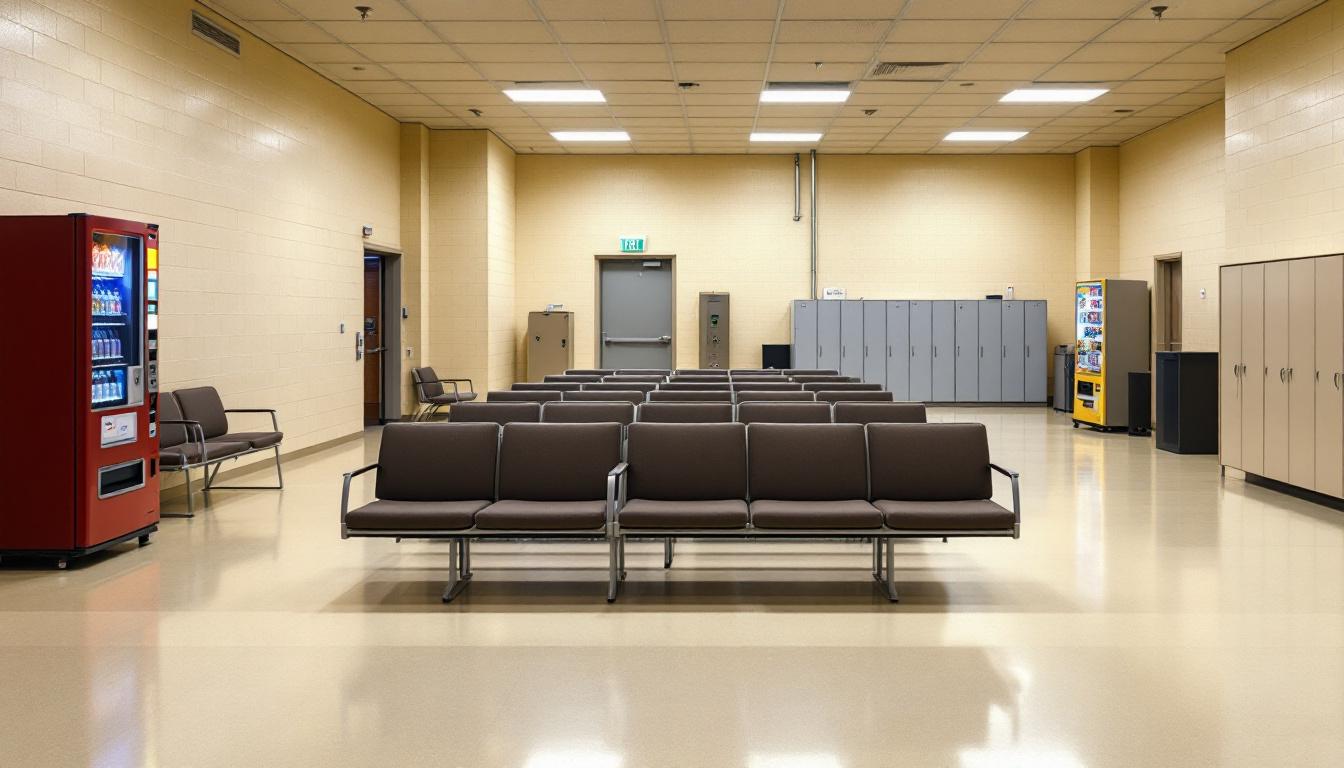
The carefully orchestrated framework of institutional protocols shapes every aspect of how the population experiences their time within the facility’s walls. At present, the detention center actively maintains a structured environment where daily routines typically begin with morning counts and progress through scheduled meal times, programming sessions, and recreational periods. The population generally follows a regimented schedule that supplies predictability and order, with staff coordinating movements between housing units and common areas throughout the day. Security procedures are woven seamlessly into these routines, ensuring that all activities proceed according to established protocols while maintaining appropriate supervision levels.
Furthermore, living accommodations within the facility typically consist of housing units designed to accommodate varying custody levels and population needs. The population usually resides in dormitory-style or cell-based arrangements, depending on classification and available space, with each housing area generally equipped with basic amenities including sleeping quarters, restroom facilities, and common areas for television viewing or quiet activities. Although personal property allowances may be limited, residents can typically access commissary services to purchase approved items that supply comfort and maintain connections to personal preferences. Meal service generally occurs in designated dining areas or within housing units, with the population receiving nutritionally planned meals that meet dietary requirements and accommodate medical or religious restrictions when appropriate.
The facility typically offers various programming opportunities and recreational activities that supply structure while supporting rehabilitation goals. Work assignments within the facility may include food service, maintenance duties, or administrative support roles, providing the population with purposeful daily activities and potential skill development. Although recreational time is generally scheduled and supervised, residents usually have access to exercise areas, television programming, and reading materials during designated periods. Visitation policies typically allow family members and approved contacts to maintain connections through scheduled visits, while communication options may include telephone access and correspondence services, helping the population preserve important relationships during their time at the facility.
Ready to Connect?
Start communicating with your loved one today
Search for an Inmate
